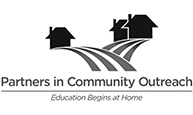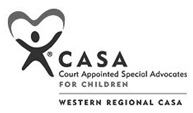CASA program helps make a difference in WV
CASA Program Helps Make A Difference In WV (Opinion)
No matter who you are or what your particular circumstances might be, it’s always possible to make a difference.
This lesson began for me on a dreary night in March 2021, in the thick of the pandemic, as I was scrolling aimlessly through Facebook (again), searching for some flimsy sense of connection, or perhaps a dose of entertainment, to combat my serious case of “bad-news fatigue.”
Instead of finding a distraction, though, I was stopped by a sobering statistic: Right now, nearly 800 children in the western half of West Virginia are waiting for someone to be their voice as they navigate the court system because of allegations of abuse or neglect.
Naturally, the first feeling that flared up was despair: Here was one more problem that I could do nothing to help solve.
I kept reading, and was surprised to be met by an invitation. “Apply to become a volunteer.”
The post was for Western Regional Court Appointed Special Advocates (CASA), an organization that engages and empowers volunteers to advocate for children in the court system.
To me — a recent college graduate working a 9-to-5 job with no children — the role sounded daunting, but doable.
No experience was required to become a CASA volunteer, as training would be provided, so I decided to apply, and was sworn in as a volunteer the same summer.
West Virginia, I learned, has the highest number of children in the foster care system per capita of any state in the country. On any given day, more than 6,000 children in the Mountain State are living outside their home, either in foster care or in institutions. Many are victims of abuse or neglect who find themselves in court through no fault of their own, their future up to the judge on the bench. Should the child stay in foster care? Should they be returned home or be adopted?
It’s in this space of uncertainty and vulnerability that CASA volunteers enter.
With the foster care system and Child Protective Services so overburdened, it falls upon each and every one of us to make sure children in our communities, and their families, have the support they need to grow up happy and healthy.
While I cannot share specifics from my case for obvious confidentiality reasons, I will say that being a CASA volunteer is one of the most challenging and most rewarding things I’ve done. I quickly realized that, if I weren’t there advocating for this child, it’s possible nobody else would be. I served as a critical hinge helping hold together a tenuous network of support for a child at their most vulnerable.
To at least this one child, I made a lifelong impact.
Now, with the world open again and schedules filled to the brim, I hope we keep in mind that there are thousands of kids who need our support, and there are plenty of ways to help.
The next time you reach for your phone out of habit or boredom, I encourage you to consider what might happen if you Google “CASA,” rather than pull up Twitter or TikTok. It could change a child’s life — and your own.
Samantha Muller, of Charleston, is a former Court Appointed Special Advocates volunteer.
This letter was originally published on January 25, 2023 in the Charleston Gazette Mail.






